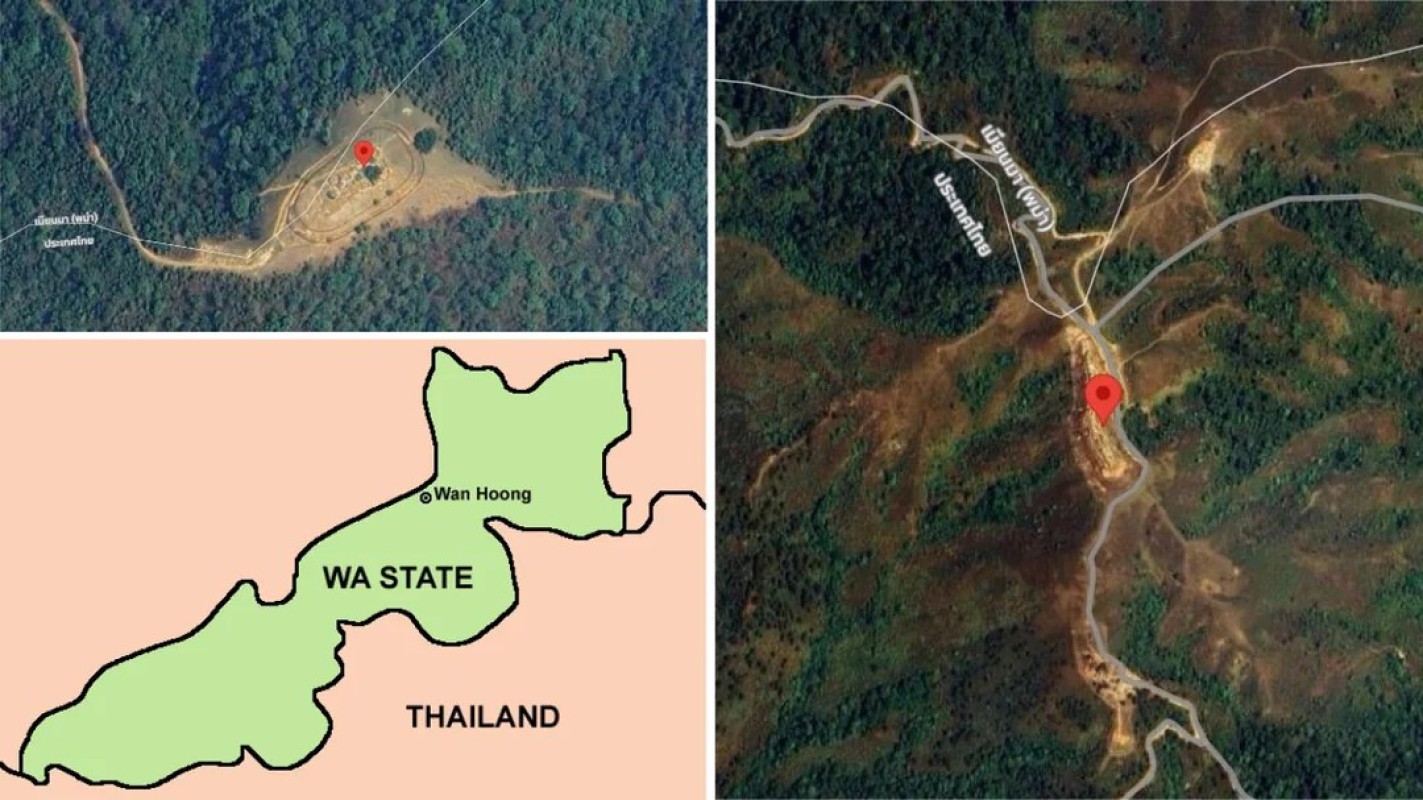UWSA: A " Viper in the bosom " threat for Myanmar

1323

Tin Zar Lynn (NP News) - Dec 2
The recent warning from Thailand demanding the removal of nine camps belonging to the United Wa State Army (UWSA) along the Thailand-Myanmar border highlights broader geopolitical challenges related to regional security, drug trafficking, and Myanmar's internal ethnic conflicts. The Royal Thai Army has set a deadline of December 18 for the UWSA to dismantle these camps, a move that has been met with growing concern in both Thailand and Myanmar. This is not the first time Thailand has made such a demand, but it comes at a time of heightened military tensions between UWSA and Thailand border security forces, with both sides jockeying for position amid broader regional power struggles.
Background
UWSA's origins and growth: The UWSA, a powerful ethnic armed group, originated in the late 1960s and formally split from the Communist Party of Burma (CPB) in 1989 to form the United Wa State Party (UWSP) and its armed wing, the UWSA. The group controls the Wa Self-Administered Division in Shan State, with ambitions of full autonomy or even independence. It is the largest ethnic armed group in Myanmar with around 30,000 soldiers as per official documents. However, statistics as shown by the Shan regional sources state that there are even 80,000 Wa soldiers including child soldiers. Again, the UWSA has been a key player in Myanmar's complex ethnic conflict.
In 2017, the UWSA proposed a confederation model at the 21st Century Panglong Peace Conference, seeking self-determination and local control over security forces until a federal system is established. The proposal also called for a security framework where ethnic armies would defend autonomous states. This initiative is part of the Federal Political Negotiation and Consultative Committee (FPNCC), Myanmar's largest ethnic armed coalition, led by the UWSA. The FPNCC includes over half of Myanmar’s ethnic armed groups, with influence spanning from the Mekong River to the Bay of Bengal.
Wa region's role in the drug trade: The UWSA-controlled region has long been notorious for its involvement in the production and trafficking of illicit drugs. Thailand's Special Narcotics Force reports that a large percentage of illicit drugs entering Thailand are sourced from Wa-controlled areas, intensifying security concerns along the border. The increasing use of these areas for drug production and trafficking has strained relations between Thailand and Myanmar, exacerbating cross-border tensions.
Thai-Myanmar diplomatic relations: Thailand's concerns over the UWSA's presence have been longstanding. Previous requests for the removal of Wa camps have gone unheeded, but this latest demand is part of a broader regional security strategy. Thailand has emphasized cooperation with Myanmar on issues such as drug trafficking and border security, and there is a shared interest in addressing cross-border terrorism and criminal activities. Diplomatic meetings, such as the one between Thailand's Prime Minister and Myanmar's leader Min Aung Hlaing at the 8th Greater Mekong Subregion Summit, underscore the continuing focus on these issues.
The core issue: sovereignty vs. autonomy
The UWSA's reluctance to engage fully in Myanmar's national peace process, particularly its refusal to sign the Nationwide Ceasefire Agreement (NCA), reflects its desire to preserve its autonomy and avoid concessions that would undermine its power. The group is not just fighting for local control but is striving for its self-determination and autonomy. The Myanmar government, however, views these demands through the lens of national unity and territorial integrity, making negotiations difficult.
For Thailand, the growing strength of the UWSA presents a direct security threat, particularly as the armed group's activities spill across the border. While Thailand is trying to manage its relationship with Myanmar diplomatically, it also faces growing pressures to secure its border and address the drug trade emanating from Wa-controlled areas. The situation is further complicated by the UWSA's influence over other ethnic armed groups in Myanmar, many of which have similar aspirations for greater autonomy or federalism.
The diplomatic and security dilemma
The pressure on Thailand to act against the UWSA camps is rooted in security concerns, but it also highlights broader regional dynamics. Thailand's security priorities are shaped by its desire to combat transnational crime, prevent armed conflict from spilling over the border, and maintain regional stability. At the same time, Myanmar's internal conflict—characterized by ethnic insurgencies and the quest for autonomy—complicates any straightforward solution.
The UWSA's growing military capacity, its strategic alliances with other ethnic armed groups, and its resistance to a federal solution further complicate peace effort. The Myanmar government faces an uphill battle in dealing with the UWSA, as conceding to its demands for autonomy could set a precedent for other armed groups and further fragment the country.
Outlook
The outlook for Myanmar's ethnic armed groups is shaped by their ongoing demands for a federal system, particularly a confederation, which would grant them autonomy in governance and control over judicial power. If these demands were met, it could allow ethnic groups to expand their military forces and retain arms, complicating efforts to maintain national security and stability. These groups often insist on negotiating directly with the government to secure such autonomy. As long as these groups retain military strength, their demands are likely to persist, posing a challenge to any peace process.
Given these complexities, the Myanmar government faces a difficult decision about whether to grant federalism to ethnic groups. A careful, thorough analysis is needed to weigh the potential benefits of peace and autonomy against the risks of further fragmentation and instability. Ultimately, the government must determine the approach that best balances the country's need for stability and security with the demands for ethnic self-governance.